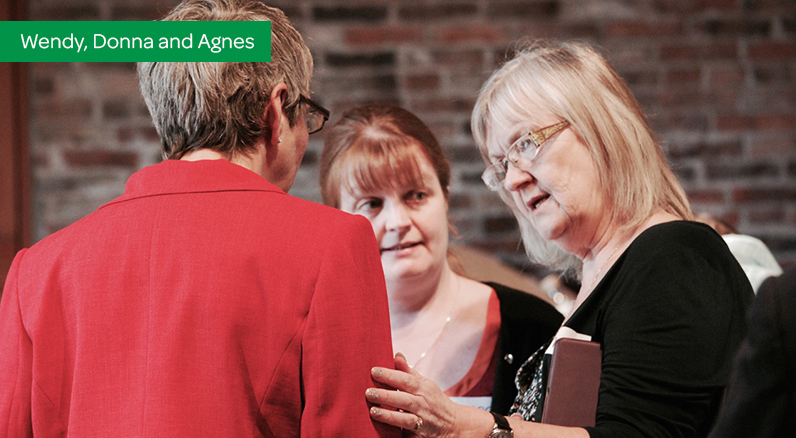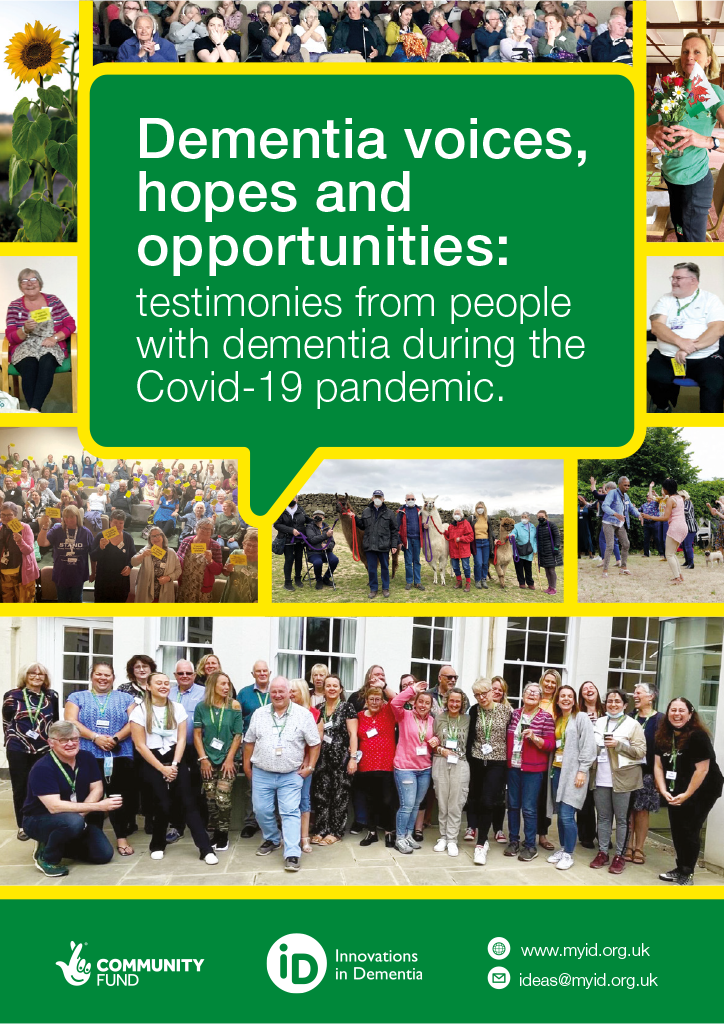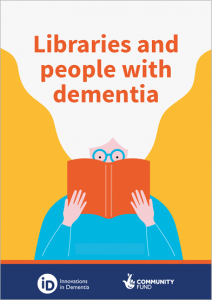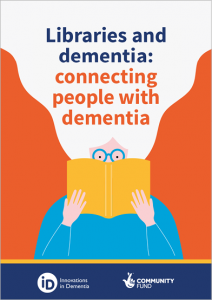
Belonging
People with dementia have been telling us for years that the most important thing in their lives are the relationships they have, and the sense of belonging……belonging in a family, a couple, a group of friends, a football club, or in a whole community.
Since 2007 we have been working on projects that focus on the sense of belonging, and the right to belong. Much has been focused on belonging to communities, through our work on rights, accessibility and dementia friendly communities. More recently Damian’s work has enabled us to focus more closely on what happens within couples and support people through our work on Getting Along.
Reflections from the COVID-19 pandemic
In March 2020, the UK entered its first national lockdown in response to the Covid-19 pandemic. Life changed overnight, and in ways that couldn’t have been anticipated or prepared for. Here is the recording of the launch of our report ” Dementia voices. hopes and opportunities: testimonies from people with dementia during the Covid-19 pandemic” – sharing the knowledge, wisdom, aspirations and hopes that people with dementia generated and shared with each other during the pandemic. (December 2022).
You can watch it below:
The story of DEEP
Watch this recording of ‘The story of DEEP, the UK Network of Dementia Voices’ (December 2022). Stories and reflections from 10 years of DEEP, including people who were there at the beginning.
You can watch it below:
Peer Support in action
What happens in a DEEP group meeting? In this recorded discussion you will watch a short film of a recent group meeting of the York Minds and Voices group. The group’s facilitator Damian Murphy and two group members talk about what makes a group work well.
You can watch it below:
Covid report
Dementia voices, hopes and opportunities: testimonies from people with dementia during the Covid-19 pandemic.
“But for now we lie, half awake, half dreaming
Waiting to see if our clock is about to stop
Waiting for the warming sun to rise on us again
Waiting to pass into a new land
The same but profoundly different”
George Rook, 2020
In March 2020, the UK entered its first national lockdown in response to the Covid-19 pandemic. Life changed overnight, and in ways that couldn’t have been anticipated or prepared for.
Initially, like many organisations, we weren’t quite sure how to respond. How could we best support people with dementia? What sort of adjustments were needed to work in a different way? How could our programmes of work be delivered?
But of course, the solutions and approaches were all there in the huge resource of thousands of people with dementia connected, at a grassroots level, through the Dementia Voices programme.
You can download it here.
Libraries and people with dementia
We know that libraries are a safe place of connection for people, embedded in local communities. They are trusted places full of trusted people. We have been talking with libraries about how they currently support people with dementia. We also looking at new ways of supporting people with dementia in libraries. We are interested in the potential to grow a community embedded movement where people with dementia feel connected and valued and library staff feel inspired and confident.
Women and Dementia
Dementia disproportionately affects women. Both prevalence and risk are higher – and, intriguingly, the symptoms women typically experience are more severe.
Two thirds of primary caregivers are women – and, in all formal care services (whether in the community, hospitals, or care homes), the workforce is predominantly… women.
So is dementia a women’s’ issue?
Click hear to read our blog ‘Is dementia a women’s issue? And if not, isn’t it high time it was?’
Speaking from the Heart – a DEEP event for and about women and dementia
We held a wonderful event for women affected by dementia – ‘Speaking from the Heart’ – on 10 July 2019. You can listen to some of the Dementia Diaries about it here:
Dory reads Jane Garvey’s article about ‘Speaking from the Heart’. Click here for this audio diary.
Frances’ reflections. Click here for this audio diary.
Dory’s reflections. Click here for this audio diary.
Glenda’s reflections. Click here for this audio diary.
Shelagh’s reflections. Click here for this audio diary.
Peer support
How can we harness the power and value of peer support for people living with dementia?
We are starting to understand the power and value of peer support for people living with dementia. Peer support is routinely advocated in policy and strategies for dementia care across the UK – but access to opportunities varies and the waiting lists can be long.
People with dementia are finding new ways of supporting each other through user-led influencing groups (see the DEEP website – www.dementiavoices.org.uk), blogging and social media.
Some thoughts from people attending groups for people with dementia
“We’re all in the same boat and we don’t need to worry who is listening”
“I feel so much love and support in the group”
Like Minds – Oxfordshire
“It’s the best group I’ve ever seen”
FIT – Bradford
“Our group is a lifeline”
Friends together: Redditch and Bromsgrove
“It’s the most wonderful choir you’ve ever heard”
Vocal Flourish Choir: York
“I’ve never had so many laughs in my life. It’s a short life you have.”
“The group was a chance to share what was like having a rocket shoved up your backside.”
“This group pulled me out of it – because they’d been through it. They helped us come to terms.”
Springboard: Rochdale
“We’re just coming out of the shadows”
Dementia Working Group: Ireland
Getting Along
Getting Along is a ground-breaking approach in and around the time of diagnosis that helps couples and families to avoid the many traps that dementia sets within relationships. There are formal programmes for couples and families as well as training and facilitation courses for staff.
‘Was it all a sham?’ asked one man of his marriage of 40 years, struggling to understand his wife’s dementia. Far too often services have tended to separate carer and cared-for and treated each with their unique set of problems in isolation of each other.
We all need space, but if we do not seek to equip couples to live better together with dementia we are failing. However many groups, day services or meetings that people attend a week, the vast majority of time is spent at home together where people could be rubbing each other up the wrong way and falling into the many traps that dementia sets for the uninitiated. What we have found is that within relationships a sense of belonging, control, voice and identity is often compromised for both person with dementia and carer. As Agnes Houston reminded us
‘let professionals do the caring and let us get on with our relationships!’
So what did we find?
’To equip couples/families to live better with the presence of dementia – well you’ve ticked that box!’
‘Most services are just social. They don’t help you back at home where you spend most of your time’
In our first session a carer mentioned that, ‘she needs to accept she has dementia’. On our last session he concluded, ‘I realise it’s me who has to accept that she has dementia’
With an aim to enable professionals to recognise and respond to both sides of the caregiving relationship one consultant old age psychiatrist said, ‘this couple were visibly more relaxed since the programme than when I last saw them’
Another couple asked, ‘Why didn’t people tell us all this at the start? Everyone should have this’
Others said, ‘I would say real shouting matches have virtually gone now thanks to the Getting Along conversations’
‘I didn’t realise how he felt… No-one has ever spoken with us like this before’
When one carer said he couldn’t understand why his wife would ‘blow her top’ she said, ‘I have to do that, otherwise I’m nobody’ …
Innovations in Dementia also has a training programme that will equip learners to:
- Address both sides of the caregiving relationship
- Respond to inequalities in relationships you observe
- Create a dialogue from the perspective of the person with dementia
- Look at the practicalities of facilitating a programme – getting all parties on board – preparing materials – negotiating consent – arranging dates – writing up and sharing
Some feedback from the Getting Along© training
‘We see all these antagonisms, and we cannot just walk away, yet that’s what our current system often forces us to do. We need to reclaim our role as social workers’
‘fantastic interactive training. Very interesting and I enjoyed the group work’
If you want to adopt a relationship-centred approach within your service or would like Innovations in Dementia to run a formal programme and training for you, contact damian@myid.org.uk for more information.
Other resources
Links to other resources.
- Peer Support for People with Dementia: A social return on investment study… Read more
- Evaluation report – Peer support groups to facilitate self-help coping strategies for people with dementia in extra care housing… Read more
- Dementia friendly communities: supported learning and outreach with the deaf community… Read more
- Dementia Peer Support Resource Pack… Read more
- Supporting Derek… Read more
- Peer support groups to facilitate self-help coping strategies for people with dementia in extra care housing. From the Mental Health Foundation… Read more



